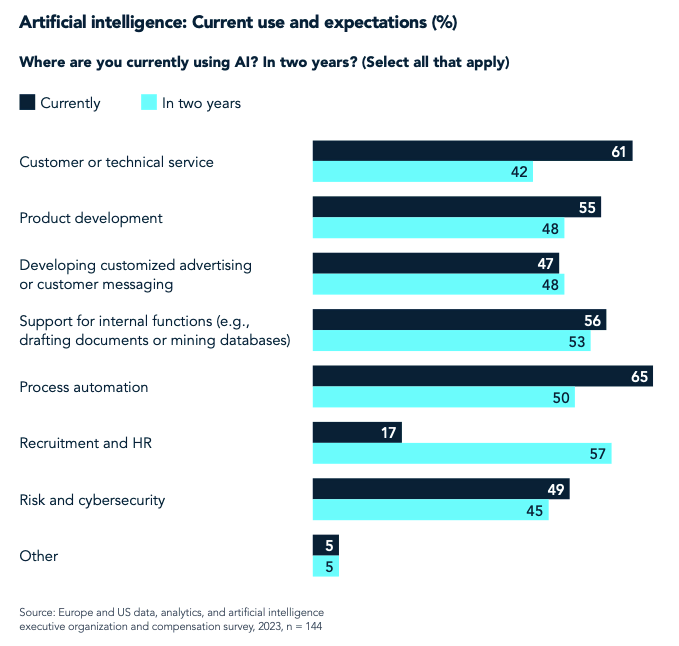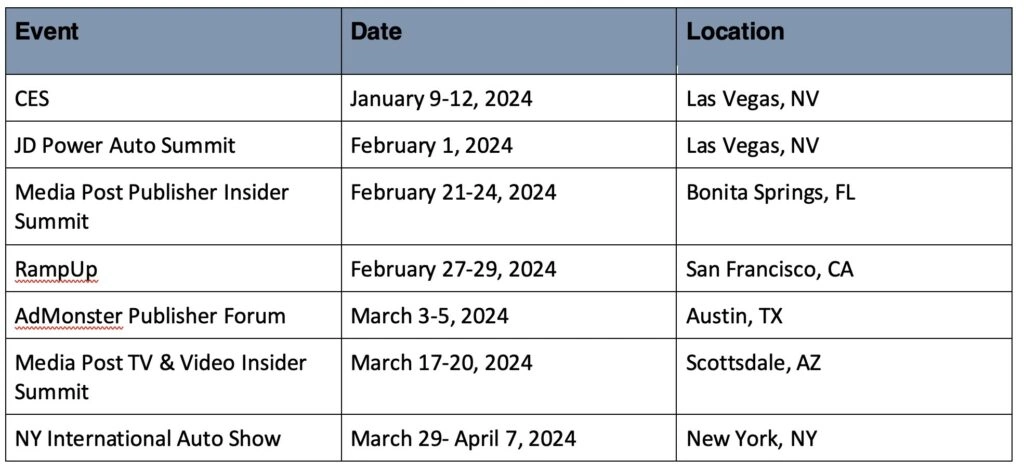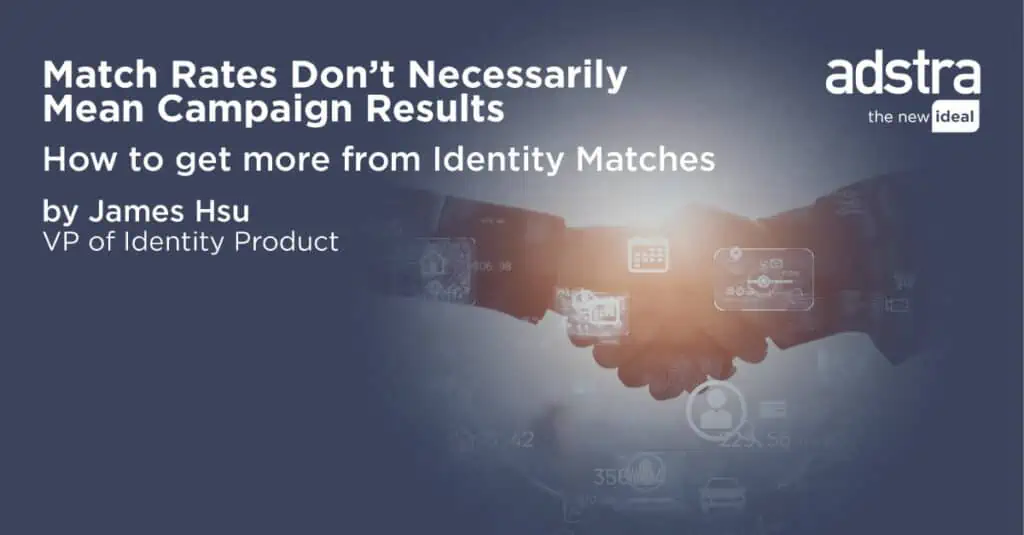

Happy Holidays!
As we come to the close of 2023, we wanted to pause and thank our readers, clients and followers for being part of the Adstra journey. We hope that you, your family, friends, and colleagues are finding health, happiness and success in all that you are doing and looking forward to the new year.
For us at Adstra, 2023 was another year of growth, success, and innovation. Our client Net Promoter Score increased yet again from 67 to 69, putting us at an industry-leading status in the data & identity market, over 10k brands and 4k agencies engaged with our audiences. We have also further refined our Go-To-Market approach around our key market segments: retail, publishing, travel & entertainment, automotive, financial services, and the exploding CTV channel. This also included the recent relaunch of our website, bringing a greater clarity and focus on how we are helping advance the data and identity market by “Changing the Way You Data”.
Redefining the word Data as a verb is at the heart of how the marketing and ad tech industry moves forward. To be successful, brands need to think about the entire set of actions around them and how they use data effectively to drive desired outcomes. Data is an action. With the proliferation of media channels, data sources, and privacy regulations, it is easy to miss one step in the process that could diminish the impact of your entire campaign, either now or in the future. The noise of cookie deprecation, loss of IP address and Mobile device ID visibility, and concerns over data security and honoring consumer choices can certainly seem daunting at times, but if you look at the entire way to “Data” and connect it to outcome, you can often find new approaches that make the tasks more manageable.
Adstra has zoomed in on 4 key areas that brands should be looking at in their Data practices: Control, Connection, Transparency, and Adaptability.

Control is about bringing your critical data operations behind your firewalls, reducing the risk and cost of depending on intermediaries. Access to your customers and the data associated with them is one the largest drivers of success, so why give someone else the ability to limit that.


Transparency is about understanding the level of accuracy around connection, activation, and measurement and setting those levels to match the needs of the business.
Identity resolution is not a binary answer of yes or no to an individual’s identity. Rather it is around the confidence you have around understanding who the customer is. A hashed email for example is no longer a highly deterministic answer to who someone is.
Shared streaming TV accounts, hacked social media accounts, and the growing use of household email accounts to manage connected appliances are just a few examples of what is driving the deterioration of email accuracy.

Adaptability is the simple question around having technologies and approaches in place that can change and survive the constant evolution of how the marketing process works.
The media channels we market through and the technologies that we employ are forever changing and brands need to make sure their solutions for today do not limit them to execute tomorrow.
AI brings power to solving ID resolution challenges
A near term answer for many brands has been the rapid introduction of AI into their processes. AI affords brands the opportunity to solve problems at a higher speed than ever before, allowing them to keep up with the changes they are facing. We can get into the pros and cons of AI at another time, but it is true to say that like any new and evolving technology, if you stay focused on the outcomes and understand the inputs clearly, there is a lot of value to be gained by making use of it.
For us at Adstra, we have recognized the power AI can bring to solving the ID resolution challenges.
By interrogating new data sources and expanding the moments of customer visibility, AI can be used to overcome the loss of identity signals we are seeing, and bring greater confidence in the validity of the audiences a brand engages with.

That being said, the rush to use AI may temper in the short term as organizations recognize its limitations in driving strategy and innovation.
Heidrick and Struggles recently completed their global study of analytics professionals and found that companies are heavily engaged in using AI in customer service and process automation, but expect to pull back a bit for AI’s use in the next two years.

As we move forward, we will certainly look to keep everyone up to speed on how we here at Adstra think about the evolution of AI and how it can help brands address the questions of Control, Connection, Transparency and Adaptability.

As we like to do from time to time, we wanted to zoom in on some of the recent activity in our industry around privacy and data regulations. It is important to understand what is happening not at just the federal level, but also the state and local levels, because they can all impact how a brand can market to and service their customers.
An editorial in HIPAA Journal said that enacting a federal privacy law would be critical to future governance of AI and noted past support for the ADPPA in committee.
A recent California appeals court decision against Meta Platforms threatens to disrupt online advertising by effectively banning demographic targeting, NetChoice warned in a legal filing in the case. The decision, handed down in September, allowed a California resident to proceed with a lawsuit claiming that Facebook violated the Unruh Act — a state civil rights law — because the company’s ad-targeting system allegedly failed to serve some life insurance ads to women and older people. The group argued that if the ruling is left in place, it will “effectively ban” targeted advertising, “leading to a less personalized online experience, higher costs for small businesses, and a less vibrant and innovative online marketplace.”
In an interview with Roll Call, Senator Maria Cantwell said that the Senate is on track to pass a package of children’s online safety measures this year before turning to federal data privacy legislation early next year.
A coalition of technology trade associations, the American Civil Liberties Union, LGBTQ groups, and others have launched the Keep Kids Safe and Connected campaign to highlight unintended consequences that could result from the Kids Online Safety Act, COPPA 2.0, and other bills.
Senator Roger Wicker sent a letter to Defense Secretary Lloyd Austin asking that the Secretary “provide periodic updates about what actions the Department is taking to help reduce the exposure of service members’ sensitive personal information to data brokers.” The letter cited a recent Duke University report on the sale of personal information of active-duty members of the military, veterans, and their families.
Senator Catherine Cortez Masto reintroduced three bills to strengthen data privacy protections and safeguard Americans’ personal information.
The Washington Post reported on Senator Schumer’s comments that a “duty of care” may be part of his approach to regulating AI.
Bloomberg published an article to explain SB 362, California’s new data deletion act.
Meta proposed that app stores should require parental approval when users under 16 download apps. The Washington Postand other outlets reported on the news.
A series of rulings by the 9th Circuit Court of Appeals upheld a trial court’s dismissal of a lawsuit claiming that car manufacturers violated Washington state’s wiretap law by allegedly intercepting and recording text messages from cellphones connected to on-board infotainment centers. The Appeals Court upheld the trial court’s dismissal on the grounds that the consumers allegations, even if proven true, wouldn’t show they had been injured by the alleged privacy violations.
The Federal Trade Commission‘s unsealed privacy complaint against mobile data broker Kochava alleges that location data sold by the company is “not anonymized” and is “linked or easily linkable” to individual consumers.
The Electronic Frontier Foundation called for a ban on behavioral advertising to address a broad range of complaints about the internet and technology. MediaPost covered the report.
The Irish Council for Civil Liberties issued a new report, “America’s hidden security crisis,” that argues that real-time bidding data could also be used by foreign governments to pressure military personnel and U.S. political leaders. MediaPost highlighted the group’s publication.
Senate Commerce Chair Maria Cantwell said she’s postponing hotlining the Kids Online Safety Act as she works with bill sponsors to address concerns it could restrict content serving the LGBTQ+ community. Hotlining is a method to survey senators to see if there are objections to the bill before pushing it forward. Senator Schumer’s latest “Dear Colleague” letter on year-end priorities didn’t list kids online safety legislation, which had been listed in his previous letter in September.
In an op-ed for The Hill, proponents of California’s Delete Act advocated for enactment of similar legislation at the federal level.
The California Privacy Protection Agency proposed new regulations on automated decision making technology that would restrict companies’ use of first-party data for advertising. Stu Ingis said the proposal was “a bridge too far.” He added that requiring publishers to allow people to opt out of profiling for ad purposes would “basically allow people to opt out of advertising,” given that much advertising today is fueled by data. Ingis said the restrictions on the use of first-party data could conflict with the portions of the law that only require companies to allow people to opt out of the sale or transfer of their data for cross-context behavioral advertising. The Agency Board will provide feedback on the proposed regulations at the December 8, 2023 board meeting, and the Agency expects to begin formal rulemaking next year.
Meta sued the Federal Trade Commission in an attempt to stop the agency from reopening a 2020 privacy settlement with the company that would prohibit it from profiting from data it collects on users under 18. In a lawsuit filed in federal court in Washington, D.C., the company said it is challenging “the structurally unconstitutional authority exercised by the FTC” in reopening the privacy agreement. “Meta respectfully requests that this Court declare that certain fundamental aspects of the Commission’s structure violate the U.S. Constitution, and that these violations render unlawful the FTC Proceeding against Meta,” the company said in its complaint. The suit argues that the agency’s in-house trials violate the Constitution. The suit was filed two days after U.S. District Judge Timothy Kelly ruled that the FTC could move forward with a proceeding to revise the 2020 privacy settlement and that the federal court didn’t have jurisdiction over that agreement.
A federal judge issued a preliminary injunction blocking implementation of Montana’s ban on TikTok, ruling that the company is likely to prevail on its arguments challenging the law, including that it violates the First Amendment.
CNBC reported on a lawsuit filed in the Central District of California against Gap’s Old Navy brand alleging that its chatbot participates in illegal wiretapping by logging, recording and storing conversations.
In an op-ed for Bloomberg, Representatives Cathy McMorris Rodgers and Jay Obernolte argued that the explosion of artificial intelligence and its potential impact on U.S. policy and the economy require Congress to pass a national data privacy and security standard.
Meta unveiled an ad-free subscription option for Facebook and Instagram users in the European Union, European Economic Area and Switzerland. Starting next month, residents will have the option of paying around $11 or $14 a month (depending on location) for ad-free versions of Facebook and Instagram on Android or iOS operating systems. People in the covered areas can continue to access the services for free, but only if they accept personalized ads.
California Governor Gavin Newsom signed the Delete Act, which aims to enable state residents to easily remove their information from all data brokers registered with the state. “If enacted as-is, SB 362 will create catastrophic impacts for Californians by eradicating the very data that powers their access to free and low-cost online content, products, and services,” the Association of National Advertisers, American Association of Advertising Agencies, Interactive Advertising Bureau,American Advertising Federation, and Digital Advertising Alliance had said in a letter to Newsom that encouraged him to veto the bill. Politico, Bloomberg, MediaPost, and other outlets covered the Governor’s decision. Senator Ron Wyden applauded the bill’s enactment. Bloomberg separately noted concerns about compliance raised by industry members at a conference hosted by the International Association of Privacy Professionals.
Newsom also signed legislation that would strengthen the California Consumer Privacy Act by including immigration status under the definition of sensitive data, removing information related to abortions or other reproductive health services from the list of exempted information that businesses can disclose if needed to comply with other state laws or to cooperate with law enforcement, and a bill that would place privacy restrictions on video footage captured by in-vehicle cameras.
New York Governor Kathy Hochul and Attorney General Letitia James announced their support for state legislation that aims to protect children by prohibiting online platforms from collecting and sharing their personal data without consent and limiting addictive features of social media platforms that are known to harm their mental health and development.
The Buckeye Institute released a new policy report, Key Principles for State Data Privacy Laws, “detailing a free-market approach states should take in passing data privacy laws and outlining the failed European approach that some states have explored.” The group promoted the report in an op-ed for The Hill.
The president of the Wisconsin Technology Council advocated for a federal data privacy law over a state-by-state legislative approach, writing, “Small businesses don’t have the time or money to navigate competing laws across state lines.”
In an alert warning consumers about scammers’ use of social media, the FTC said, “scammers who place ads can even use tools available to advertisers to methodically target you based on personal details, such as your age, interests, or past purchases.” MediaPost highlighted the alert.

If you want to learn more about Adstra in person, here are few upcoming events that Adstra will be attending. Feel free to reach out to us and we would be happy to meet with you. You can always reach us at connect@adstradata.com.


AI Identity Forum on LinkedIn
While we are just getting off the ground with this, we at Adstra recognize the importance AI will have going forward in evolving the customer identity resolution and data connection process. But with the new capabilities AI affords us, it also brings new challenges around identity error rates, fraud, and data ethics. We believe that these are all issues that should be discussed in an open and supportive way across the industry. To support this dialogue, we have launched the AI Identity Forum on LinkedIn where we invite all members of the marketing community to ask questions and share thoughts that we can all learn from, with a goal of creating unified standards and approaches that will help the entire marketing ecosystem evolve with AI in the best possible way.

How AI Can Fix Identity Resolution’s Major Flaw
By Andy Johnson – Chief Data Officer – Adstra

AI’s Crucial Role in Enhancing ID Resolution for Marketing
By Andy Johnson – Chief Data Officer – Adstra

Match Rates Don’t Necessarily Mean Campaign Results
By James Hsu – VP of Identity Product – Adstra

The Financial Case for Identity
By Charlie Swift – EVP Head of Marketing & Account Management – Adstra






